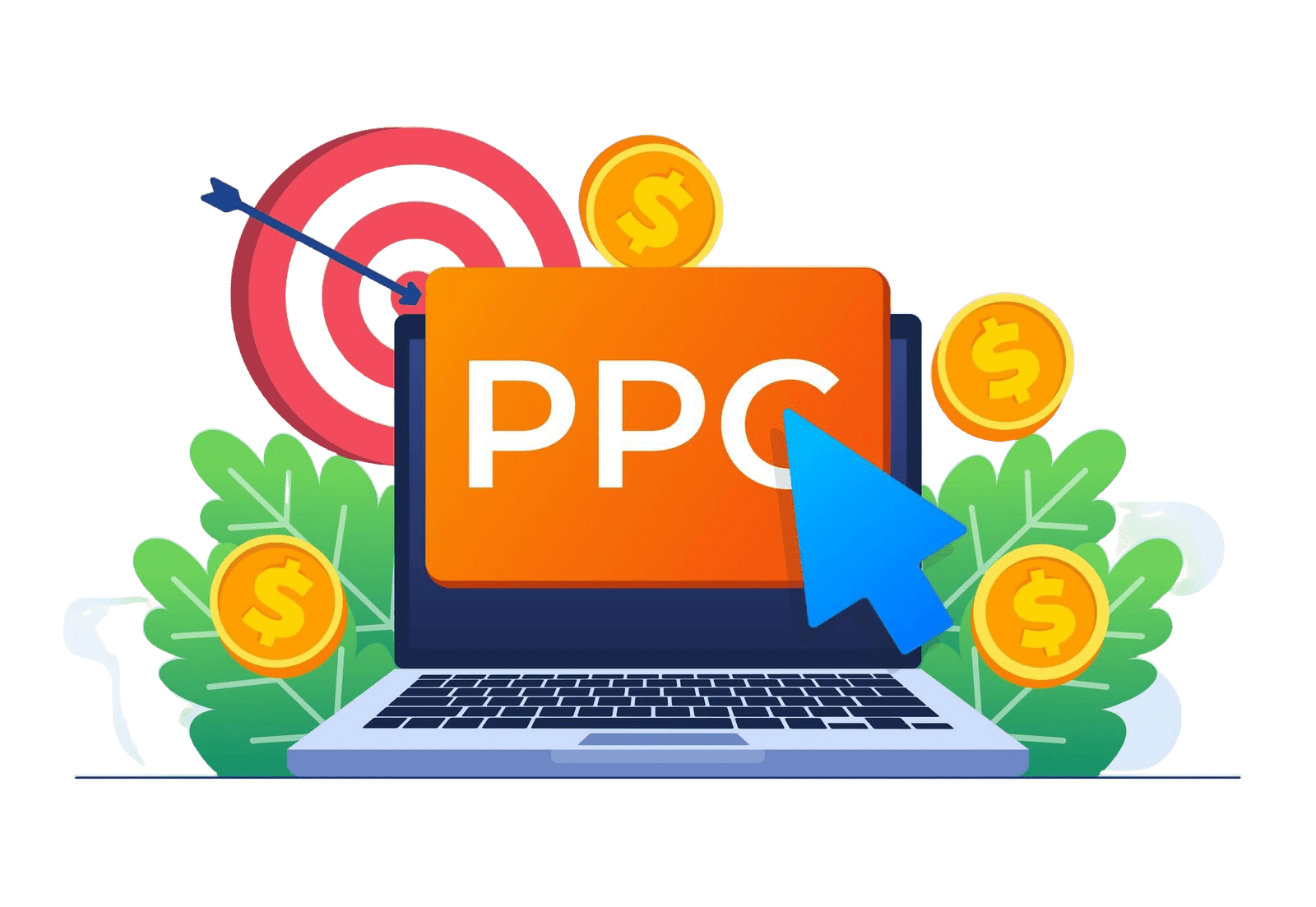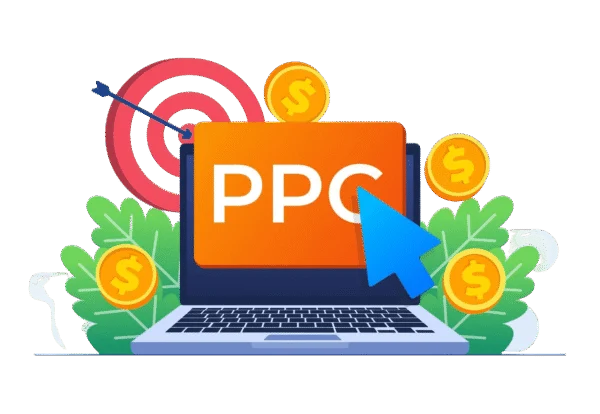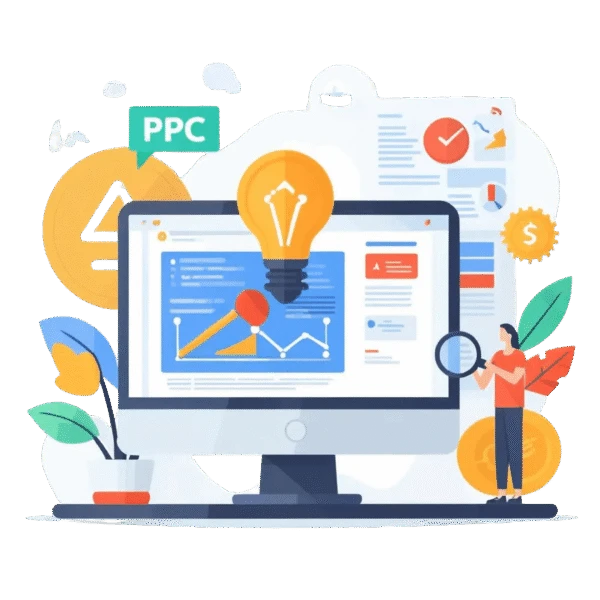Grow Your Business Faster with the Best PPC Company



What does a Google ADS Agency do for you?
Google Ads, or PPC (Pay-Per-Click) marketing, lets businesses pay only when someone clicks on their ad, ensuring the budget reaches genuinely interested customers.
Partnering with a trusted PPC marketing company or one of the best performance marketing agencies helps create targeted, optimized campaigns that deliver maximum ROI. Unlike SEO, which takes time, PPC provides instant visibility, traffic, and quality leads from day one.
While SEO builds long-term authority, combining it with PPC campaigns managed by experts accelerates results. Businesses that work with both a best SEO company and professional PPC specialists achieve faster growth and measurable performance.
Our Expertise in PPC Campaigns
Services -
- Google Ads Campaign Management
- LinkedIn Ads Campaign Management
- Facebook Ads Campaign Management
- Google Shopping Campaign Management
- Youtube Ads Campaign Management
- Bing Ads Campaign Management
- Reddit Ads Campaign Management
- Amazon Ads Campaign Management
- Twitter Ads Campaign Management
Solutions -
- PPC Management
- PPC Audit
- PPC for B2B
- PPC for IT Outsource
- PPC for Local Business
- PPC for Ecommerce
Why Choose Us For PPC Service In Lucknow ?
Advertisements
On our side, we make advertising texts and banners.
Analytics
We set up end-to-end and product analytics.
Communication
We hold weekly meetings to discuss the results and report once a month.
A complex approach
Select the necessary advertising channels and get results from there.
Partner status
Our team is a partner of Google and Meta as an advertising agency.
Traffic protection
Protecting your traffic from spam requests and click fraud.
Strategy
Implementing long-term strategies starting from the MVP version.
Landing Page Design
Design landing pages for each type of traffic in order to increase ROI.
Benefits Of Working With The Best Google Ads Agency In Lucknow

Before launching advertising, we work out a media plan, competitor analysis, market analysis, optimize the site.
We carry out monthly reporting and weekly synchronizations based on the results of advertising campaigns.
We build end-to-end analytics and performance reports to track the return on investment in advertising at the campaign and strategy level.
Work closely with web analytics, analyze the performance of the site, the user's path to conversion and its final status MQL, SQL.
We care about keeping your traffic safe from spam. We use click filtering services to achieve a high level of protection and avoid fraud.
We adjust the plan every week and try to use every opportunity to scale the result.
FAQs
Some Frequently Asked Questions

Our team of experts provides the best PPC advertising service, carefully managing your budget while creating strategies tailored to your audience. From setup and optimization to ongoing monitoring, we handle every aspect of your campaign to maximize ROI.
With so many pay-per-click advertising companies in the market, choosing the right partner is crucial. At Apple & Oranges, we provide expert PPC strategies, measurable results, and dedicated management to help your business grow
PPC advertising helps drive highly targeted traffic to your website, increase brand visibility, and generate leads or sales quickly. By partnering with a best PPC marketing company or a trusted best pay per click advertising company, businesses can ensure their campaigns are strategically planned for maximum ROI.
As a best PPC marketing company, we determine your campaign budget by analyzing your business goals, industry, target audience, competition, and desired outcomes, ensuring your PPC campaigns are cost-effective, result-driven, and deliver maximum ROI.
PPC drives instant traffic and leads through paid advertisements, while SEO focuses on building organic rankings and long-term visibility. Partnering with a best PPC agency or a best PPC marketing company ensures your paid campaigns are optimized for maximum ROI. With expert PPC services in Lucknow, businesses can complement their SEO efforts, achieving both immediate results and sustainable growth in search engine performance.
Yes, PPC can be highly effective for small businesses, helping them reach the right audience quickly and generate leads or sales. Partnering with a best pay per click advertising company or using expert best PPC management company services ensures campaigns are cost-efficient and targeted. By leveraging professional best PPC advertising service, small businesses can compete with larger brands, maximize ROI, and grow their online presence even with a limited budget.

Boost Your ROI With The Best Google ADS Agency
Don’t let competitors stay ahead—partner with Apple & Oranges, the best PPC company in Lucknow, for expertly managed campaigns that bring traffic, leads, and measurable growth.
We offer the best PPC advertising service with different strategies for local or global reach. As a trusted Best Digital Marketing Company, we also integrate SEO, Social Media, Graphic Design, Influencer Marketing, Meta Ads and Website Design for maximum impact.
Learn more on our About Us page or reach out through Contact Us to start your growth journey today.


